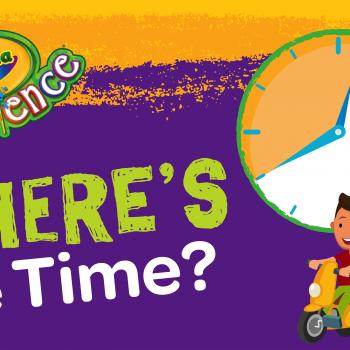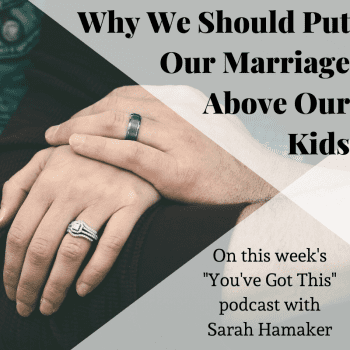
The following is an excerpt from my interview with Tricia Goyer on my podcast, “You’ve Got This.”
Tricia is the award-winning author of more than seventy books, including Calming Angry Kids: Help and Hope for Parents in the Trenches. She is a homeschooling mom of 10 and a grandmother of four. Tricia and her family live in Little Rock, Arkansas.
Anger can really upset us as parents. In our book, you share a lot of personal experiences with anger. Why does having an angry kid get under our skin?
Tricia: First of all, I never thought I was an angry parent until I had angry kids. My first three were a breeze, and then we adopted kids, and what in the world. It’s not something that we expect. We expect a little conflict, but we don’t expect full anger and a red face and fist clenched. First of all, we want to solve the problem, and we don’t know how. Second, our bodies will naturally respond to that anger. When we have that angry kid, our heart starts racing, we refill our own anger, our bodies are responding to fight or flight or freeze, and often it’s the fight—we want to do something. Something that helped me so much was not to escalate with the child. That never helps, But realize that my body is doing what it needs to do to protect me and telling myself that I don’t need to escalate, and I don’t need to pull my emotions into this. When I stay calm, it just helps everyone—my child, me, the other kids, to stay calm.
Let’s think about what we do physically. So often, we’re focused on the emotion of the moment, and we forget how we tense, or we clench our jaw or our fist. When I started to be more aware of my own anger cues, it helped me not escalate the situation with my child.
Tricia: We also think we have to solve it in the moment. As parents, we’re supposed to take care of it, we’re supposed to fix it. When our child is in an angry moment, their emotions are heightened and they’re not listening to a word we’re saying. It’s like Charlie Brown’s teacher, words are not coming through. We want them to s ay their sorry, we want them to calm down, and we want them to respond and do the right thing, and when they don’t, we think we have to. Fix this now. Or we need to be in control, so I find myself having to stop myself from following my child when they walk off. I realized that we will deal with it, but it doesn’t have to be in the moment. I need to give them a chance to calm down, I need to give me a chance to calm down, and then we can visit it later.
I’m with you—we do want to fix things immediately—but we often get derailed by our child..
Tricia: Our child will naturally know how to hit our buttons. They want to make us mad because when they can get us angry, they win because it shifts from being about her and her anger to me and my anger. If you’re angry, then she’s the victim, and we’re apologizing and explaining our actions. Then it’s not about what she did.
Our kids need to know that someone’s in control of their emotions because they’re not. The calmer we can stay—even if on the inside we’re screaming—the better it is for them to regain control and to de-escalate the situation. The tendency to fix it right now because we think they won’t remember. When we delay responding with consequences, this frees us as parents to avoid the knee-jerk reaction and to think through what we want to do that we’re willing to enforce. In the moment, we say things that we can’t follow through on.
Tricia: There have been times when I’ve had to go back and say, I was frustrated in the moment and have given an over-the-top consequences. With anything, we have to go back and apologize, and with anything, we can see later, that consequence was kind of big for what was going on, and that was really frustrating. Sometimes I’ve had a hard day in another area of my life, and that meant I gave the wrong consequences. I don’t encourage my kids to tell me that it’s unfair, but if there is an opportunity that I was too harsh in that situation, then I have gone back and talked to them about it.
You’re not the only mom who’s had to do that. Especially for multi-day consequence and you see your kid losing hope, you might need to revisit it. The purpose of consequences is not to make the child lose hope, it’s to help a child correct their heart and to do better next time.
Tricia: It’s easy to hand out consequences, but it’s harder to teach the moral reasons or values. If I see something that’s reoccurring that we’ve given consequences for, I need to sit down with the child and do some training and teaching.
To hear more great advice and stories from Tricia, listen to “Hope for the Angry Kid” on this week’s “You’ve Got This” podcast.
Visit Sarah online at sarahhamaker.com for more tips on raising kids.All Posts












